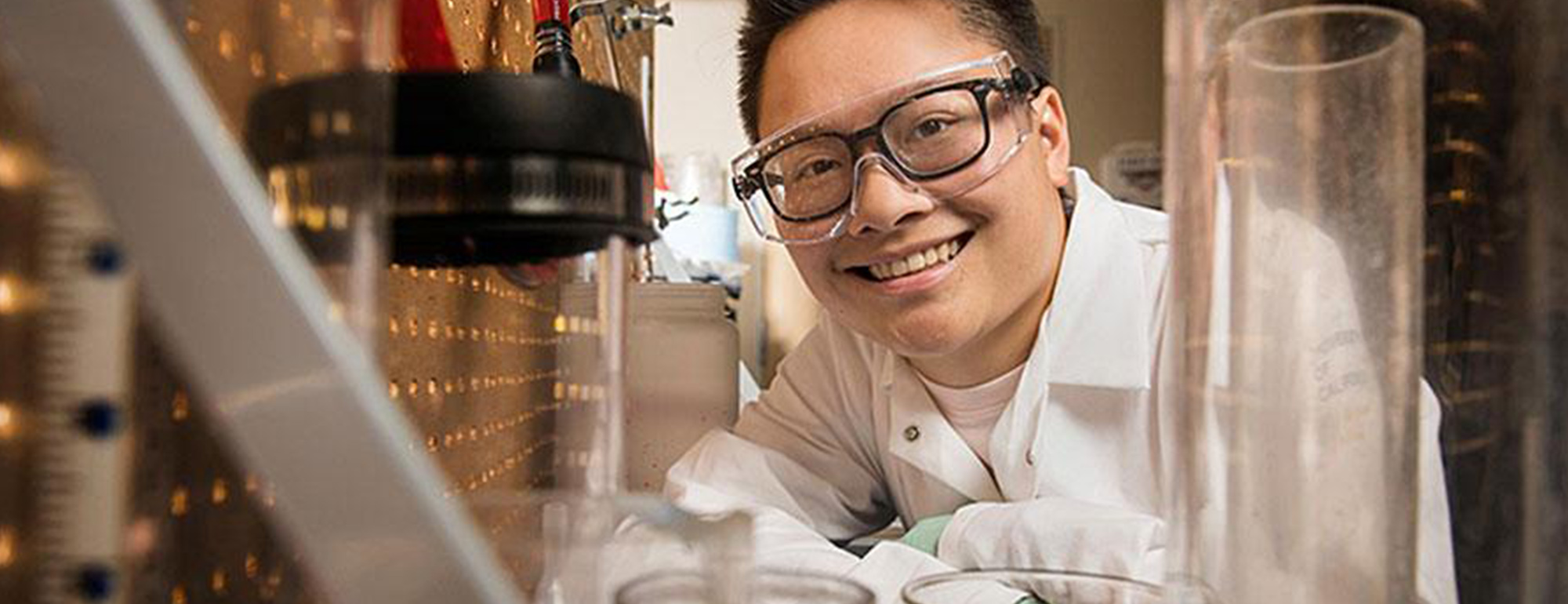
Alex San Pablo
First-year doctoral student, College of Engineering
More information
Alex San Pablo ’18 has found a support structure at UC Davis that sustains her in uncertain times, just like the structures she hopes to build one day as a civil engineer.
College is difficult enough, but San Pablo, who graduated in June with a bachelor’s degree in civil engineering and starts a doctorate in geotechnical engineering at UC Davis in September, has an added stress. She is undocumented, moving here from the Philippines when she was 11.
When her parents were separating, her mother wanted her daughters to get the best education possible but couldn’t afford one there, so she uprooted the girls and joined her sister in Southern California.
Desire to help
San Pablo chose to study civil engineering because she says she wants to improve lives. “Our professor said that civil engineers save more lives than doctors,” San Pablo says.
In her doctoral program, San Pablo will study how soil and rocks interact with buildings and superstructures. Her research examines how to use bacteria to strengthen soil so that foundations can withstand the weight of buildings during earthquakes.
She transferred from community college to UC Davis in fall 2015 for her undergraduate studies, in part for the university’s environmental ethos. San Pablo wanted to conduct eco-friendly, sustainable research and met Jason DeJong, a UC Davis civil engineering professor who was mixing microorganisms into soil. The microbial process creates a new substance that when mixed with calcium becomes calcium carbonate, which is as hard as sandstone. “It’s cutting-edge, interdisciplinary research,” San Pablo says, and allows her to work with the microbiology department and the Arizona State University-based Center for Bio-mediated and Bio-inspired Geotechnics.
‘My home away from home’
San Pablo says she also chose UC Davis because of its support for undocumented students. The AB540 and Undocumented Student Center was named after the California law that allows undocumented students to pay in-state tuition at public universities instead of a higher amount assigned to nonresidents. The center has a team of lawyers to help navigate work permits and immigration issues, and academic and financial aid advisors, among other resources.
“I knew that coming from Southern California, I needed to find a support system, and I found it here at UC Davis,” San Pablo says. “It’s my home away from home on campus. If I need a resource, they are the experts.” San Pablo’s support system has deep roots. In addition to the center, she cites her mentor, DeJong, who encouraged her to develop a list of people who could immediately take legal or financial action on her behalf if she were to be deported. She has received so many local scholarships, she says, that she hasn’t had to pay tuition. “There is a huge community here that’s willing to help (undocumented) students,” she says.
She cites other sources of support such UC LEADS, a campus program that helps educationally or economically disadvantaged STEM students pursue advanced degrees. The program allowed her to conduct research over a summer at UCLA and get a glimpse of graduate school there. The student-led We Are Aggie Pride program has paid for textbooks, a huge help as one used engineering textbook can cost $300.
The program inspired San Pablo to start a lending library at the AB540 Center. With textbook donations and more than $5,000 in grants received from UC Davis’s library and bookstore, San Pablo has amassed more than 300 tomes.
Inspiration to Succeed
San Pablo tells her story so that other undocumented students might see themselves reflected in her and feel inspired to keep succeeding. Still, being undocumented is extremely stressful, she says. San Pablo has temporary protection under the Deferred Action for Childhood Arrivals (DACA) and says she fears being deported when she flies to academic conferences in other states. She adds that she feels pressure to maintain her grades, forgoing weekend social engagements to study and look for scholarships.
Last year, when her grandmother in the Philippines died, she had to choose between attending the funeral and losing everything she’s worked for, or remaining in California. “I knew that she was a strong woman, too,” San Pablo says. “She raised four children on her own. She was a doctor. She would want me to keep pursuing my degree. She would want the best for me. She kept telling me to go school. I need to finish school; that would be in her honor.”